- +254 794 062325
-
This email address is being protected from spambots. You need JavaScript enabled to view it.
The TAGDev 2.0 program at Egerton University on September 7th 2024 hosted an inspiring #IdeationWeekend at the TAGDev business incubation hub, aimed at empowering aspiring student entrepreneurs.This event which was facilitated by Fahad Juma, the TAGDev Entrepreneurship and Business Development Administrator, brought together 23 entrepreneurial students, focusing on equipping them with the skills to generate, develop, evaluate, and pitch innovative business ideas.
The first session of the training introduced the trainees to entrepreneurship through exposing the trainees to the success-characteristics of entrepreneurs, the importance of training in entrepreneurship and the relevance of entrepreneurship in our communities. After the interactive introductory session, the trainees were taken through the ideation phase of the entrepreneurial process. To ensure that the training capacity built the 21st century skills of the trainees, this session used a mix of lectures with discussions, group projects, plenary sessions with practicing entrepreneurs, simulations, case studies and presentations. The case studies facilitated the trainees to build their critical thinking skills in identification of market gaps and challenges that can be developed into innovative business ideas. The group projects provided the trainees a space to develop their collaboration, leadership and social skills while the presentation enabled the trainees to hone their initiative and communication skills.
Central to the training was the concept of ideation, defined as the dynamic and collaborative process of generating, developing, and refining innovative ideas. Students engaged in free thinking and explored diverse perspectives, emphasizing key components such as problem identification, feedback iteration, collaboration, and idea evaluation. A significant focus was placed on human-centered design, a technique that puts real people at the center of the development process, ensuring products resonate with users' needs and preferences.
The students were also trained on the steps of human-centered design which include: Clarity, ideate, develop, and then implement. Through this training, the students engaged in free thinking and explored diverse perspectives, emphasizing key components such as problem identification, feedback iteration, collaboration, and idea evaluation. The training provided students with strategies to balance growth with team well-being and financial health.
The trainees of the Series 1 Ideation Weekend training will attend additional experiential sessions. TAGDev envisions that at the end of their training, the trainees will not only generate, develop, evaluate and pitch innovative business ideas but also apply entrepreneurial tools and methodologies, such as business planning, feasibility analysis, market research, business modelling and financial planning, to refine and structure business ideas for practical execution. University and TVET students, graduates and out of school youth are highly encouraged to apply for enrollment in subsequent Ideation Weekend Series once they are advertised
Written By:
Ian Kamau.
Communication Intern, TAGDev 2.0 Program, Egerton University.
Egerton University welcomed a team from the Mastercard Foundation, on 15 November 2024, led by Head of Higher Education, Ms Pauline Gangla, for a high-impact visit centered on advancing the empowerment of young people, agricultural innovation, and leadership in Africa.
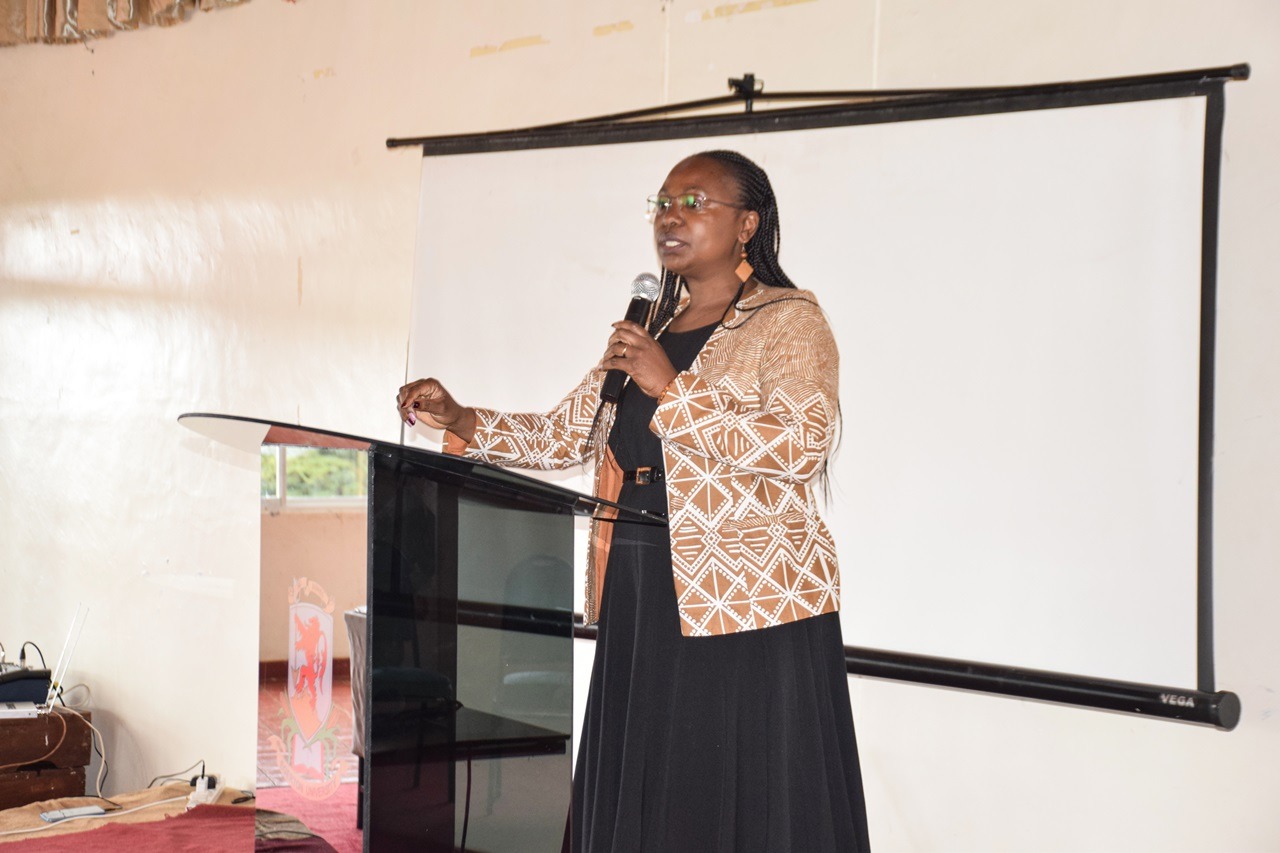
The visit began with a courtesy call to Vice Chancellor Prof. Isaac Kibwage. Discussions during the meeting highlighted Egerton’s pivotal role as a partner in the Transforming African Agricultural Universities to meaningfully contribute to Africa’s Growth and Development (TAGDev) 2.0 Program.
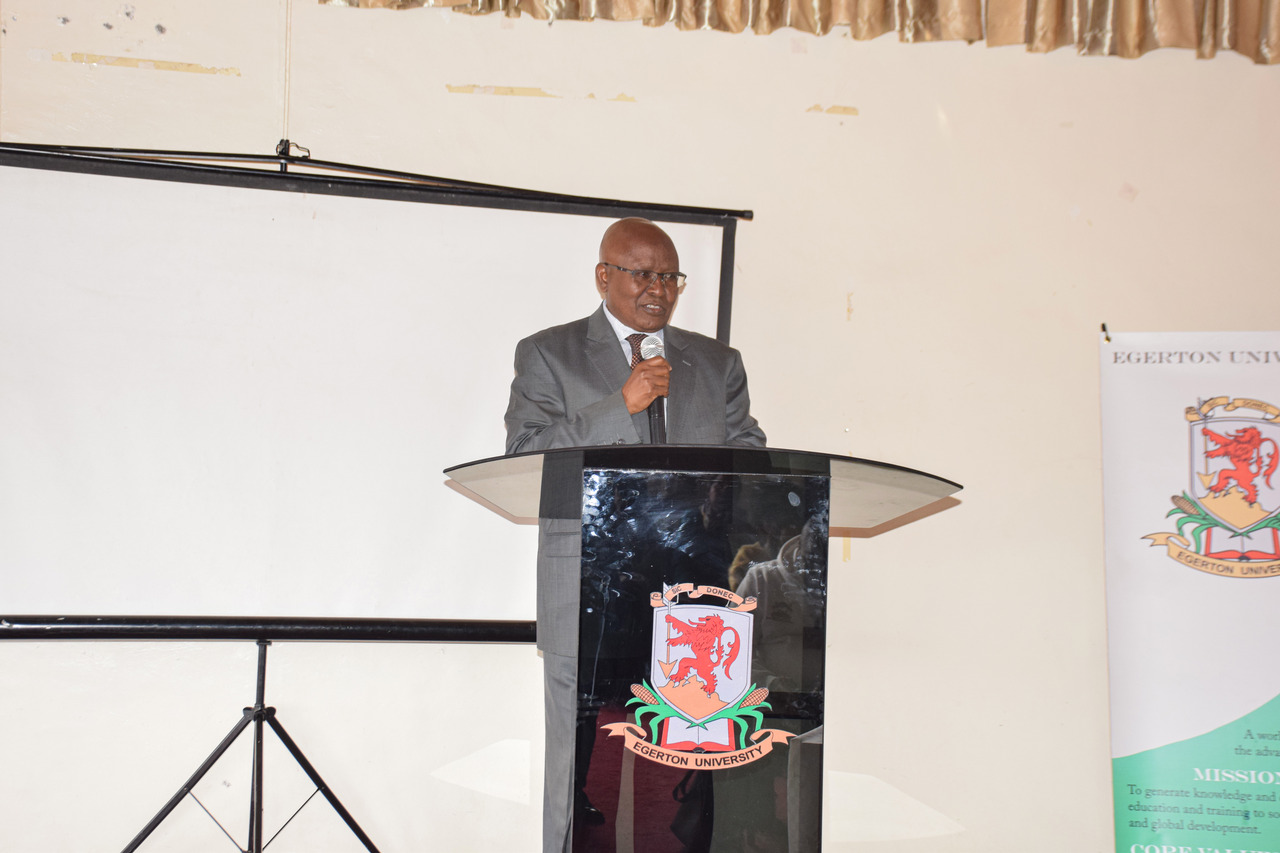
Prof. Nancy Mungai, Egerton’s TAGDev 2.0 Coordinator, gave an overview of the program, which aims to equip young people with skills, experiential learning opportunities, and leadership training to drive inclusive and climate-resilient agricultural systems. “TAGDev 2.0 focuses on empowering Africa’s young people to be the next generation of leaders in agriculture and agrifood systems,” she explained.
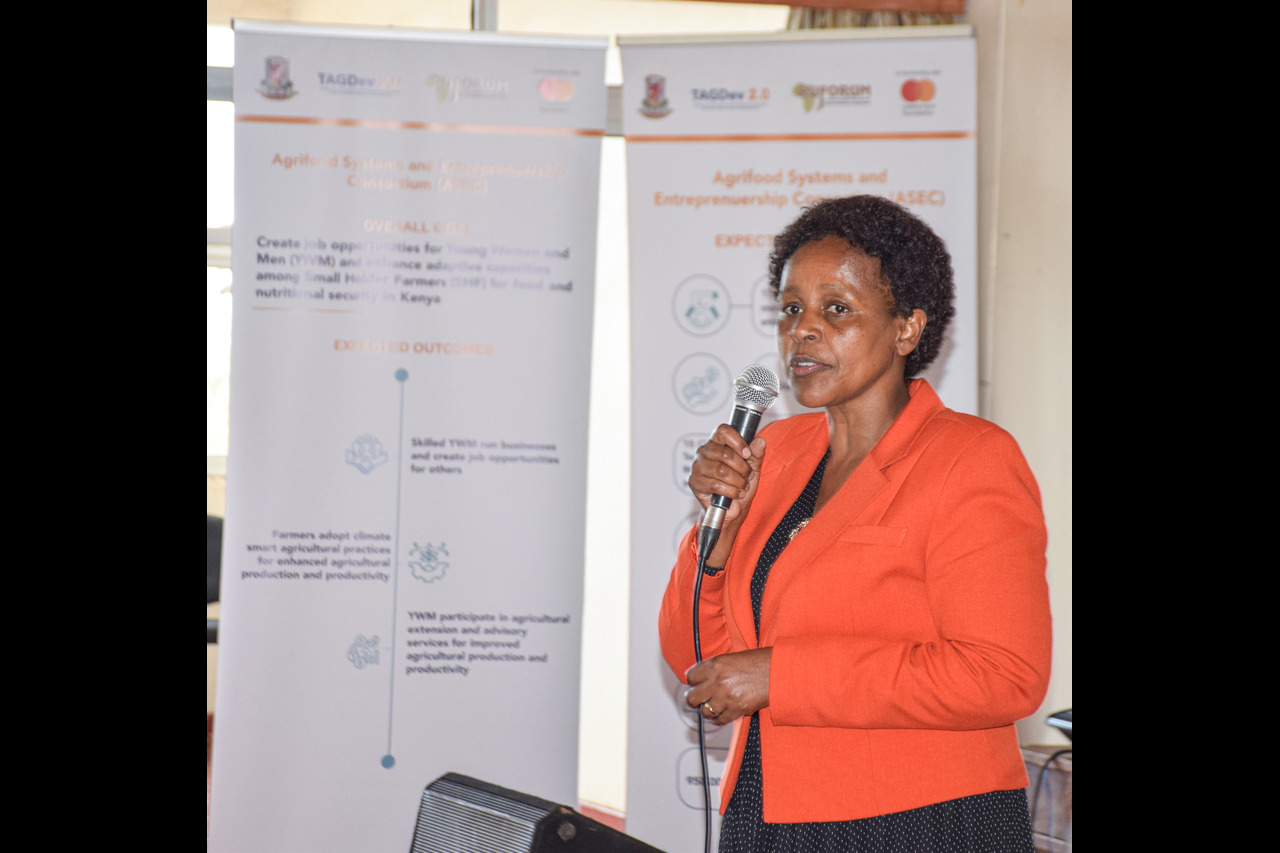
Ms. Pauline Gangla lauded Egerton’s leadership and its strengths in promoting gender inclusion among students. “With the success of TAGDev 1.0, Egerton is uniquely positioned to mentor other institutions in Africa. The University’s expertise in expanding opportunities for young women to access university education makes it a valuable partner in fostering economic advancement,” she noted.
Ms Gangla also acknowledged the strong leadership under Prof. Kibwage, who serves as Chairperson of the TAGDev 2.0 Partnership Council. She emphasized the importance of Egerton’s role in influencing policy and collaborating with governments, given the Foundation’s indirect engagement approach.
Dr Abigail Otinga, representing the Regional Universities Forum for Capacity Building in Agriculture (RUFORUM), added that Egerton is among 12 universities directly engaged with TAGDev 2.0. “Through specific projects like the Community Action Research Programme (CARP+), Egerton’s experiences and leadership from TagDev 1.0 will greatly benefit new institutions joining this transformative initiative,” she stated.
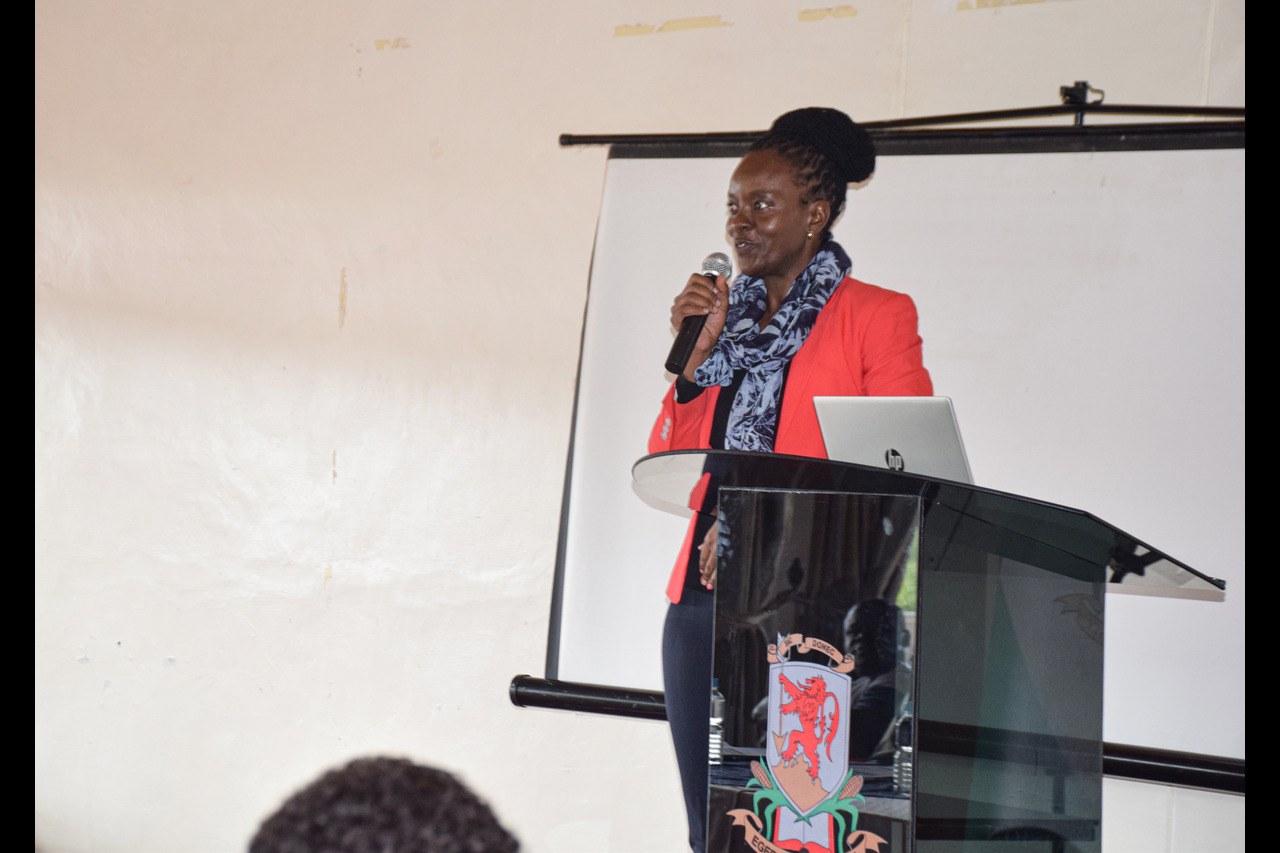
Highlighting the importance of impact-driven strategies, Mr Charles Mugoowa, the Foundation’s Lead for Program Performance and Monitoring, encouraged a shift from output-focused measures to capturing tangible outcomes. “We need to adapt our approaches, engaging with the private sector to create more opportunities for young people as public-sector jobs remain constrained,” he urged.
Ms Aster Adamu, Lead, Higher Education Programs at the Foundation, reiterated the need for creative solutions to resource challenges. She also stressed the importance of university leadership in shaping ecosystems that drive innovation and entrepreneurship.
In his remarks, Vice Chancellor Prof. Kibwage reaffirmed Egerton University’s commitment to the program, calling for greater storytelling to showcase the impact on communities. He emphasized the role of interdisciplinary collaboration in proposal development to attract high-value funding. “Innovation and inclusion must guide our efforts as we scale up TAGDev 2.0,” he said.
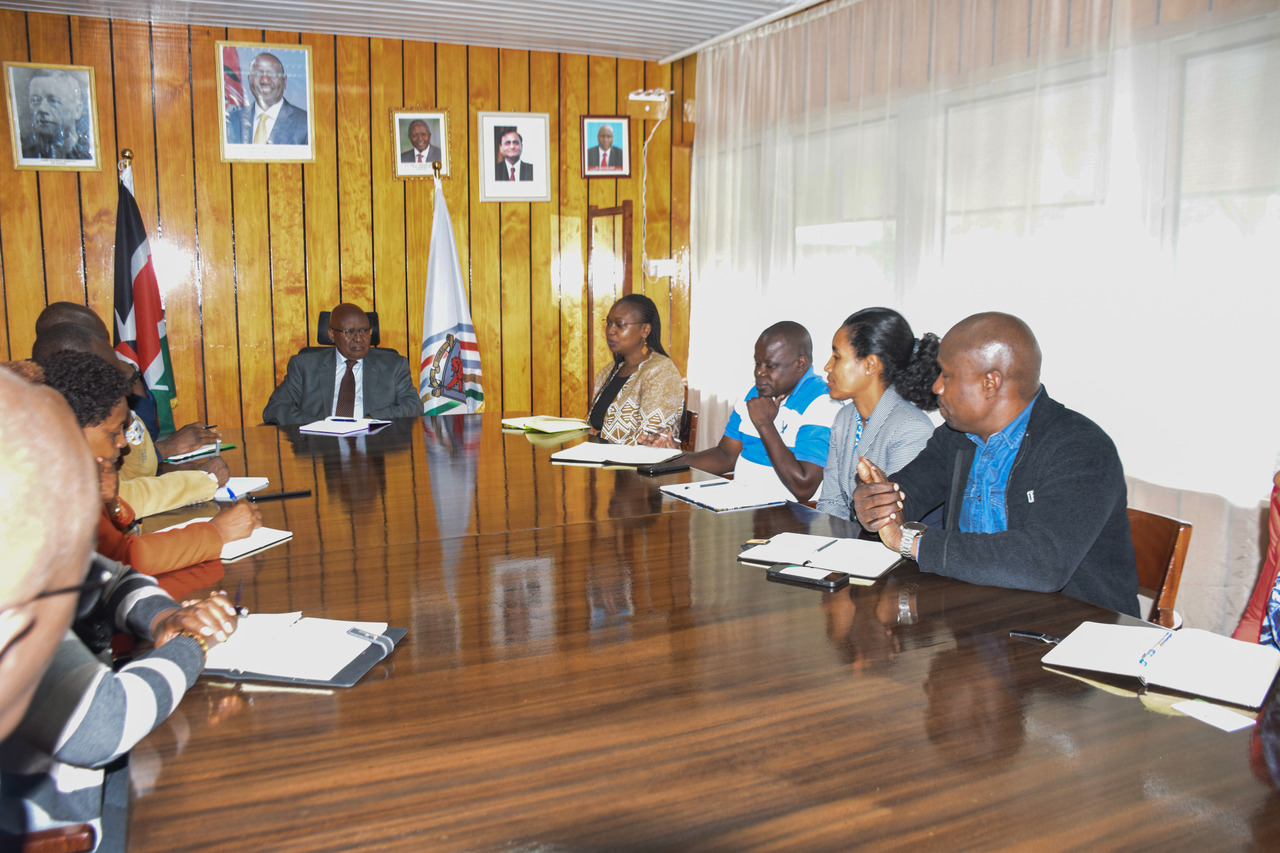
Also, in attendance during the courtesy call were Deputy Vice Chancellor for Academics, Research, and Extension, Prof. Bernard Aduda; Deputy Vice Chancellor for Administration, Finance, and Planning, Prof. Richard Mulwa; and the Director of Marketing and Resource Mobilization, Prof. Nzula Kitaka.
The courtesy call was followed by engagements with students, faculty, and private-sector representatives. The visit provided a platform to discuss challenges faced by universities and explore collaborative solutions. It underscored the need for partnerships to drive the empowerment of young people and economic development across Africa.
Egerton’s leadership in TAGDev 2.0 signals a commitment to transforming Africa’s agricultural sector through strategic initiatives and partnerships. The University’s expertise in integrating gender inclusion, experiential learning, and innovation places it at the forefront of addressing Africa’s agricultural challenges.
With the potential for deeper collaboration, the visit marks a pivotal moment in Egerton’s journey to empower Africa’s next generation of leaders.
Written By:
Ian Kamau.
Communication Intern, TAGDev 2.0 Program, Egerton University.
TAGDev Program hosted a Policy Dialogue with the Nakuru County Government and other key stakeholders, focusing on agriculture as a catalyst for youth employment and the growth of small and medium-sized enterprises (SMEs). Held in the heart of Nakuru City on 28th May 2024, the dialogue underscored the collaborative efforts needed to transform agricultural sectors and foster economic opportunities for young people.
The event saw remarks delivered on behalf of Prof. Isaac O. Kibwage, Vice-Chancellor of Egerton University, by Deputy Vice-Chancellor (Academics, Research & Extension), Prof. Bernard Aduda. Reflecting on the progress of TAGDev 1.0, Prof. Kibwage highlighted significant strides made in areas like Subukia, Solai, and Turi in Nakuru County. "Projects such as the Cassava Value Chain CARP, led by Professor Richard Mulwa, and the Seed Potato CARP, under Professor Anthony Kibe, have substantially benefited local farming communities," he noted. These successes underscore the power of academia, government, and private sector partnerships in driving agricultural productivity and improving livelihoods.
Egerton University has committed itself to furthering these collaborative efforts, aiming to co-create policies that support youth-driven economic growth through entrepreneurship. "Today's policy dialogue is about fostering these partnerships and creating an enabling environment for youth employment," Prof. Aduda emphasized. The objectives of the dialogue included engaging policymakers, highlighting the crucial role of empowered youth in economic development, and promoting inclusivity through community engagement.
Prof. Nancy Mungai, TAGDev Coordinator and acting Director of Research and Extension at Egerton University, provided an overview of the TAGDev Program. Launched in partnership with the Regional Universities Forum for Capacity Building in Agriculture (RUFORUM) and Gulu University in Uganda, and supported by the MasterCard Foundation, the “Transforming African Agricultural Universities to meaningfully contribute to Africa’s Growth and Development (TAGDev)” ran for a period of eight years (2016-2024). Over the years, it has provided scholarships to 188 students from 14 African countries, emphasizing experiential learning, community engagement, and entrepreneurship. Prof. Mungai stressed that the policy dialogue's main objective was to promote collaborations among stakeholders to create an environment conducive to a youth-driven economy through enhanced entrepreneurship.
- A Youth-led Dairy business flourishes in Busia County
- Youth Employment through Last-Mile Delivery Strategies in Busia County for Cassava Value Chain.
- ANNOUNCEMENT OF THE 48TH GRADUATION CEREMONY ON FRIDAY 29TH NOVEMBER 2024
- Transformational Change in Agricultural Education Through TAGDev 1.0 Showcased at RUFORUM Triennial Conference





